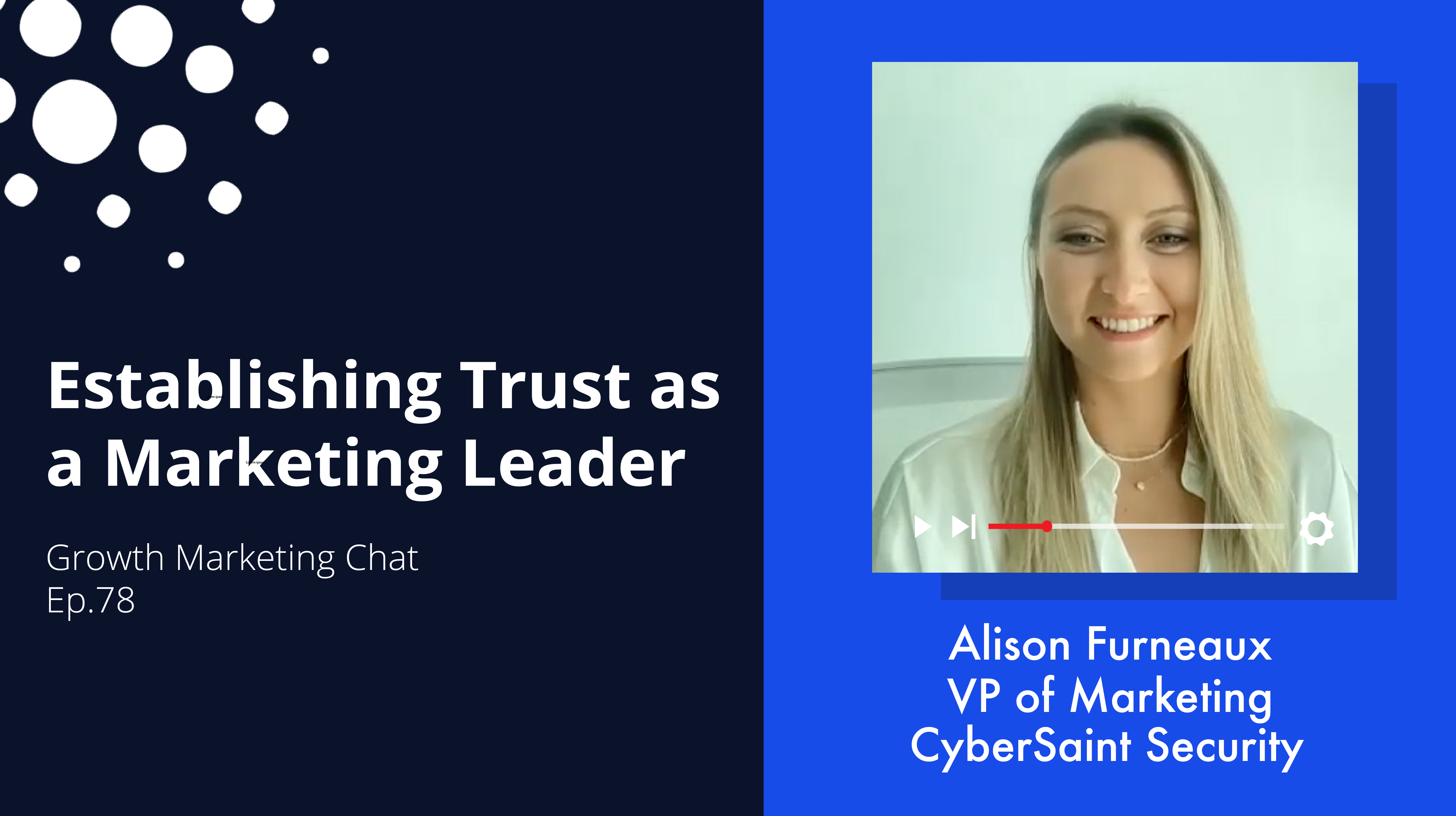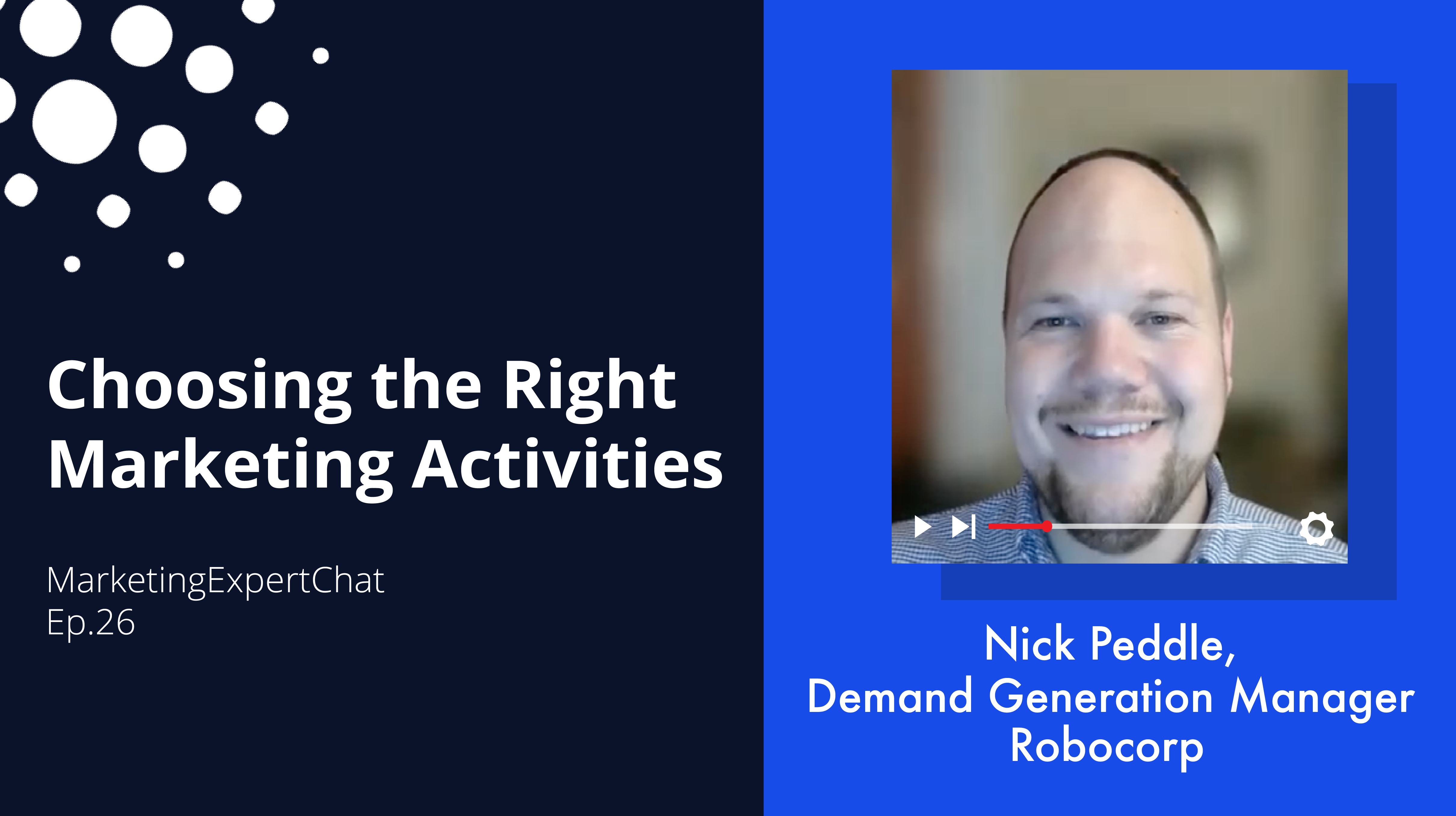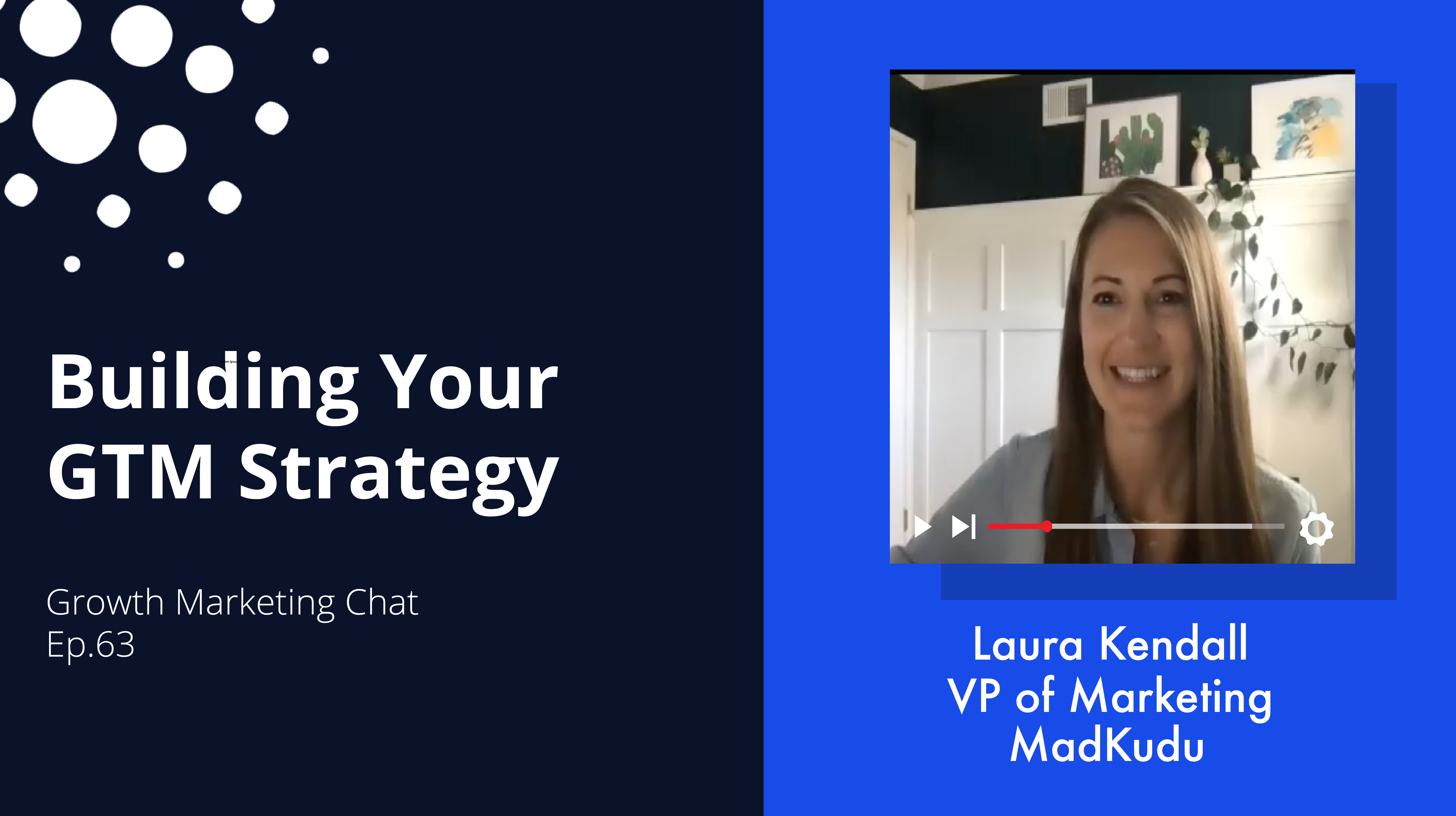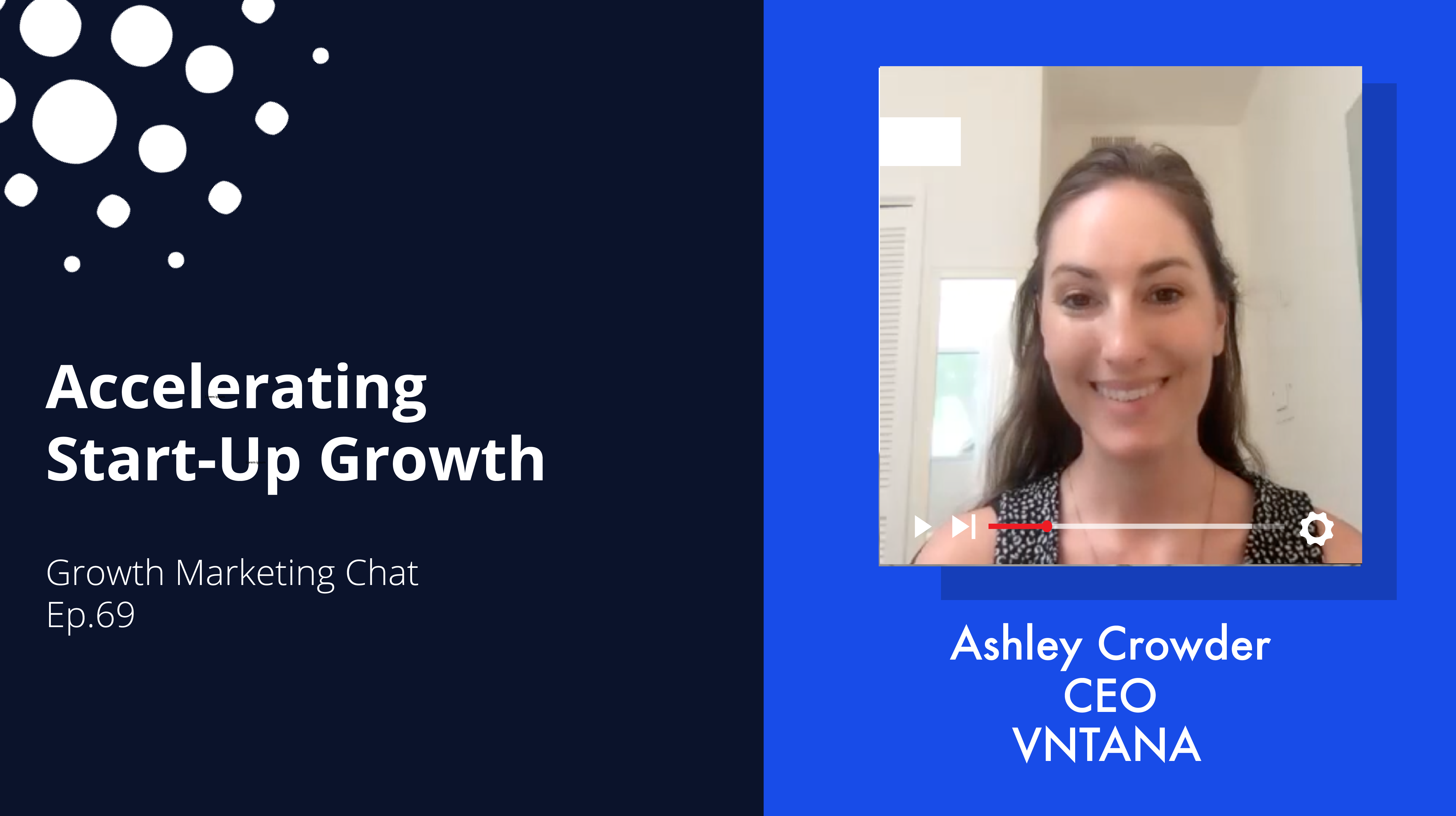We all want our companies to be the best. It’s no secret that every company wants to far surpass the competition.
But that’s easier said than done, right? Especially in a crowded market, or as a start-up.
BUT, it’s still possible. There’s just a nuance to it.
Be the Best with a Top-Notch Growth Marketing Strategy
To walk us through a strategic approach, Alex Kutsishin, Co-Founder & CEO of Sales Boomerang, sat down with Caroline Lane to share his insights and first-hand experience for crafting a go-to-market strategy that will help any business dominate their marketplace.
Tune in to learn:
- How to maximize on the uniqueness of your product
- How to have a mindset to dominate your marketplace rather than compete in it
- The importance of narrowing your targeting to reach your ideal consumers
- And lots more!
This is one you don’t want to miss. Catch the video now and start implementing these best practices in your growth marketing strategy.
Video Transcript:
CAROLINE: Hi, welcome to Growth Marketing Chat. Today, I'm here with Alex Kutsishin. He is the Co-founder and CEO of Sales Boomerang. He's also really creative, and I'm super excited to have him with us today. Alex, thank you so much for being here.
ALEX: Thank you for having me, Caroline.
CAROLINE: So last time we talked, because spoiler alert, I talk to all of my guests before we get on recording these videos, but last time we talked, you told me about kind of your approach to go-to market, and how you are approaching go-to market as trying to dominate a space versus trying to compete, and I thought it was super interesting. So can you tell us more about that?
ALEX: Well, first of all, thank you again for having me on, and yeah, you know, when you think about going to market, if you think about having to compete with the leader, you're going to have a really tough time, right? Because if you're competing with the leader, you have to talk about the leader, right? In your marketing, and your sales, and your presentations, and so you're really giving a lot of head nods to the person in the lead, and I don't think that's a good approach. So when I talk about domination, I talk about discovering something in an industry that if there are leaders, but there are space for...
Maybe there's just an inch to squeeze in, but you squeeze in and you present yourself in a manner that is so unique, and will understand what you're saying, but they have to see that there's something so different here that there isn't anything like it in the market, and it shouldn't be a lie, by the way. You should not go in there and lie and say you have something that you don't have, right? So when you go to market, you have to have something that actually works and you can stand behind, and that you can be the best in the world at, right?
So if you can be the best in the world at something, you're not competing with anyone, you can start to carve out your own sort of not just niche,but your own category, right?
CAROLINE: Right.
ALEX: And so, for me, when I think about going to market and I think about domination,I think about what is it that I can say or I can do for my audience that only my audience will hear? Let me explain to you what I mean by this, okay? Back when I owned a marketing agency in 2000, from 2005… It's actually my business partner still runs it. When I was running that company with my business partner, I had to come up with a concept, because we were doing so many great things for our clients and marketing, that to explain to my clients what we were doing, I had to come up with this analogy, and the analogy is what is the greatest marketing tool ever invented? What's the greatest marketing product ever invented, ever? What defines a great marketing, and great marketing is being able to target your audience, and your audience responding, right? That's great marketing. You targeted them, and they responded. Well, there's one product out there that's better than all, and that is the dog whistle, okay? A dog whistle knows its audience, and the best part is its audience knows it. Talk about domination, that is domination.
CAROLINE: Right, right.
ALEX: There's all kinds of different whistles out there, right? Anyone can whistle, there's this kind of whistle, you can whistle with your fingers, you can whistle just with your mouth, all millions of kinds of whistles. There's a train whistle, you name it, but this whistle alone targets its audience and its audience, no matter what it's doing, it could be digging in trash, it hears the whistle and go, "Huh?" It looks up, right?
It knows its audience and its audience knows it. That, to me, is domination, and so when we go to market, when I think about going to market, I think about how can I blow my dog whistle that only my audience hears it? I don't want everybody to hear it. Especially, I don't want my competitors to hear it. Especially, I don't want my competitors, not yet. Not ready for them to hear it yet, right? Now, it depends. If you're doing a consumer focused product or a B2B product, that all depends, but when you're going to market, especially in the beginning, when you're blowing that whistle, you only want your audience to hear it, okay? And then as you are blowing that whistle, and your audience is hearing it, and you're starting to bring them in, you're starting to clearly carve out the reason why there's nothing like you, okay?
CAROLINE: Right.
ALEX: If there's anything else you want, don't talk to me. If there's something I'm mentioning and you go, "Well, what about..." Look, then this isn't for you. You're just not the right dog to eat this dog food that I'm selling, right? And so in the beginning, going to market and becoming a dominant player means saying no to a lot of people, and only saying yes to those people that clearly go, "This is unique, fantastic."
CAROLINE: Right.
ALEX:'Cause guess what? That customer is gonna attract, a similar customer is gonna attract, a similar customer is gonna attract a similar customer. And once you've built enough gravity around your business, and you're completely dominant, meaning you are literally saying things so point-blank, like if you have a solution, be matter of fact, not we think this will do this for you, not we want this to happen for you, not we hope you're going to get this result, but point blank, if you don't do this, this is what you're gonna miss out on. If you do do this, this is what you're gonna get.
And that is all part about creating a dominant position and not marketing against anyone. People would ask me, "What about this company?" I'm like, "I have no clue." Honestly, if they've been around, why aren't you working with them? Oh, I don't know.
CAROLINE: Great.
ALEX: Well, then let's talk about how we're gonna work together, right? And so dominating and not competing, 'cause when you're competing, you know, a lot of people want to go to market, be great marketers. Marketers means you are competing, right?
You're marketing against something else, could be, that's part of a definition of it, right?
CAROLINE: Right.
ALEX: When you're thinking about dominating a space, you're not thinking about competing in marketing against another person's marketing campaign, you're thinking, how do I get as many of these people that hear my message to buy my solution now, because the most important in go-to market is feedback, bottom line.
CAROLINE: Right.
ALEX: You can't build a business in a vacuum. You can't build a business in a room. Some people try and they fail. There's a great read… Shoot, is it Hoffman? I think, okay, I forget which read it is. He always says you have to be embarrassed by your first, with the version 1.0.Your go-to-market version 1.0, you have to be embarrassed about, and he's so right. The reason you go to market and are embarrassed about your first rollout is because your clients haven't touched it yet.
CAROLINE: Yeah.
ALEX: They haven't touched it.
CAROLINE: It's not ready,
ALEX: It's not ready. - but you should go. You cannot get it ready without the feedback, right? Correct, correct. And free feedback also doesn't work, unless you have a freemium model, like your go to market is freemium, try this for 30 days, then start paying, or try this for 60, then fine, free is fine, but if you are gonna have a product, a solution, a service that you will charge for every time, there's no such thing as a free meal with you, then do not do a free beta, either. Do not let people try your solution for free. Even if you have to charge them 10 bucks, even if you charge them $10, charge them something, 'cause people tell the truth when they have to pay. Even if it's 10, even if it's a dollar. when you're charging someone, they're like, "You know what?", “You took my money, I'm gonna tell you the truth," and that is another part of domination too, is a lot of people are like, "I just want to try "and see what people say."
No, you want to dominate, make people pay from day one, right? Make them pay from day one. So that's my go-to-market domination kind of strategy, and domination, you have to also choose...So for instance, let's pick a, you know, and I'll choose a larger-than-life example, right? Let's just choose Airbnb for just a second, right? They were entering a market that had every corner covered. Every single thing you can think of, to go and find a place to stay and sleep, well, it's covered. How could they even break into this market? But they figured it out and they didn't come to compete. They created a message that people were like, either it resonated, you heard the whistle or it didn't and if you heard the whistle, there was no other solution for you, because guess what? You had all those other solutions in the market already. Why are you answering my call?
If you could do anything else, you have hotels, you have all these other things you could do. If you could do all these, why are you going to my website? Why are you even interested in this? Because I blew my whistle and you heard it, and I'm only blowing my whistle to you. That's a great example of domination. They came out and dominated, and that's important. It's important because when people market and they have people call in saying, "I'm interested," they try to sell them. In the beginning, you don't want to sell people, right? You want them to why'd you choose to come here? Because it sounded interesting. Why did it sound interesting?
'Cause I've never heard anything like this. Ah, what specifically did you hear that you never heard before? This, this and that. Fantastic, when are we moving forward, right? They've sold themselves, you don't have to sell them, and so that's all part of the dominating strategy.
CAROLINE: Right, right, so there was something about being really unique, really targeted, right? A lot of people try to be everything to everyone, and you can't do this, especially at the beginning, because you can't refine what you're doing if you do that, right?
ALEX: Yes. Yeah, I mean, any… Well, it depends, there are some that came out together, but any really top performer in their industry has focused on domination and not competition. Now, you have some areas like Microsoft and Apple. Okay, they're both extremely successful, they figured out their audiences each, they both focus on a few different things even though they overlap, you can call them both dominating in their space, but in many other arenas, in many other categories, there is the dominant player, and then there's everyone else.
CAROLINE: Right.
ALEX: And so that's why I think domination is sort of the best marketing strategy, is you can stop… For a long time in Sales Boomerang, I just kept the blinders on, like I don't care what's happening out here. I don't care what this guy's doing, what that company's promoting,
CAROLINE: Right.
ALEX: I don't care. It's literally so I could be honest, when people say, "Have you heard of this?" I can be like, "No, I haven't," right? I haven't heard of it. What about… Nope, I haven't heard of them. So it's like when you can keep your blinders on and just focus on your one audience and just win there, man, then sort of the world starts to open up for you, but you gotta dominate with your audience.
CAROLINE: Right, well, Alex, thank you so much, really amazing story and insight here. I really appreciate you coming here and sharing these with us.
ALEX: It's my pleasure, thank you so much for having me.
CAROLINE: Thanks, Alex.





